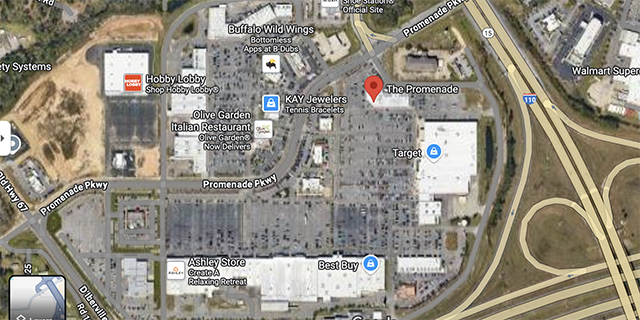10 most landlord-friendly states in 2025
Published 2:00 pm Friday, July 25, 2025
10 most landlord-friendly states in 2025
Landlording in the wrong state can quickly turn into a nightmare. You could end up with hard-to-evict tenants, high property taxes, and rent control that makes it impossible to keep up with the market.
For these reasons, knowing the country’s most landlord-friendly states is a wise move. Owning property in a state where eviction laws, property taxes, and policies all work in your favor makes real estate investing a whole lot easier.
TurboTenant, a company owned and operated by landlords, put together this list of the 10 best states to own rental property.
Criteria for Ranking States
Trending
To accurately build the list, each state was chosen based on several essential considerations. The focus was on factors that directly impact profitability, risk, and the ease of managing properties for landlords.
Eviction process: Removing troublesome tenants shouldn’t be a drawn-out, unpredictable ordeal. The list prioritized states with shorter eviction notice periods, streamlined court procedures, and laws that facilitate landlords’ quick recovery of their property when tenants violate the terms of their lease.
Property and income taxes: States with low property and income tax rates offer landlords greater financial flexibility, particularly for smaller investors. Lower taxes help preserve cash flow and improve ROI, while higher rates can shrink profits and limit long-term growth.
Rent control restrictions: Rent-control laws are only active in a handful of states, like California and New York, but they make it difficult for landlords to improve properties, adjust for inflation, and maintain long-term profitability. As a result, every state on this list bans rent control outright.
Demand for rentals: The list favored states with high rental demand, including those with desirable college towns, thriving job sectors, and booming populations. A steady tenant pool helps reduce vacancies, increase demand, and attract reputable renters.
Cost of entry: Affordability plays a huge role in determining whether a property can generate positive cash flow. As such, the list prioritized states where home prices are affordable for investors, especially those building portfolios or seeking long-term income.
Trending
Remote landlord feasibility: The analysis also considered the ease with which landlords can manage rentals from out of state. Strong infrastructure, favorable laws, and reliable access to property management tools enable landlords to operate efficiently from anywhere.
#10: Colorado
Though Colorado has a relatively high cost of entry, landlords will still find a lot to love. For starters, Colorado bans rent control, enforces a straightforward eviction process, and maintains one of the lowest property tax rates in the country at 0.49%.
The Centennial State is also a highly desirable place to live and visit, thanks to world-class outdoor access, six professional sports teams, and several in-demand university towns. A strong military presence also supports stable housing demand across multiple regions.
Keep in mind: As of 2024, Colorado landlords are required to have just cause to deny lease renewals, a shift that could signal more tenant-friendly laws on the horizon.
#9: Kentucky
Eviction notices in Kentucky are fast and straightforward: landlords only need to give seven days’ notice for nonpayment, leaving little wiggle room for uncooperative tenants. Property taxes are below the national average at 0.74%, and there are no rent control or stabilization laws that limit how landlords set their unit prices.
The affordable cost of entry is also a considerable advantage, with the median home value at around $196,550, which is well below the national average of $347,700. Though Kentucky isn’t the most flashy rental market, demand remains steady due to a mix of sustained job growth, university towns, and a large population of long-term renters.
#8: Ohio
Ohio gives landlords a fast track to boot lease-breaking tenants, allowing a minuscule three-day notice before filing for eviction. Additionally, there’s no rent control statewide, and the cost of entry is among the lowest in the country. Homes in Cleveland (Ohio’s second most populated city) average just $116,700 apiece.
Investors have undoubtedly taken notice of Ohio’s upside. Morgan Properties recently closed a $501 million deal that included 3,000 units, citing apartment shortages and rising demand across key cities like Cleveland and Columbus.
#7: North Carolina
Rent prices in North Carolina increased by over 20% from 2014 to 2023, indicating strong long-term demand. Average rental yields, a more accurate metric for determining profitability, typically range from 8% to 12%, which is significantly higher than the national average of 6.1%.
Additionally, eviction rules in North Carolina favor landlords in a big way. If a tenant breaks the lease, landlords don’t need to give a single day of notice before filing with the courts. Add in low property taxes at 0.62%, an exceptional quality of life, and a reasonable cost of entry, and it’s easy to see why North Carolina ranks among the most landlord-friendly states in the country.
#6: Georgia
Atlanta, Georgia’s state capital and most populated city, saw positive absorption for seven straight quarters, meaning more units were rented than became available. Tight supply and booming demand continue to drive growth, making Georgia one of the best places for landlords to own property in 2025.
Georgia supports swift, cause-based evictions with a three-day notice for non-paying tenants. Additionally, the median home price sits around $322,750, which places Georgia among the more affordable states to buy rental property, especially in high-demand metro areas like Atlanta.
#5: Alabama
At a scant 0.41%, Alabama boasts the second-lowest property tax rate in the country behind Hawaii. To put that in perspective, an owner of a $350,000 property in Alabama will pay around $1,435 in annual taxes, whereas the same home in New Jersey would demand $7,735. That’s a whopping $6,300 difference for landlords.
Alabama checks all the other boxes, too. Low cost of entry? Check ($221,490 on average). High rental demand? Check (Auburn and Tuscaloosa posted 7.4% and 7.0% rent growth). Swift, straightforward evictions? Check (seven-day notice only). Zero rent control? Also check.
Needless to say, landlords in the Yellowhammer State don’t face many obstacles.
#4: Indiana
Indiana ranks as the 11th most affordable state in the country, just one tick above Alabama in median home price. High occupancy rates and average rents around $1,500 create reliable cash-flow potential and quick returns for rental investors.
In terms of markets, Indianapolis stands out as a top pick for budget-focused buyers. The city offers a $220,000 average home price and an impressive 16.5% gross rental yield. Factor in a 3.6% unemployment rate and a below-average 3% state income tax, and Indiana becomes a clear value play for long-term real estate investors seeking stable returns.
#3: Arizona
Though home prices in Arizona sit comfortably above the national average, landlords have plenty of other reasons to invest in the Grand Canyon State. A housing shortage helped drive rents up 72% in metro Phoenix from 2010 to 2022. Further, Scottsdale, Chandler, and Gilbert all rank among the nation’s most livable rental markets.
It’s no wonder Phoenix ranks #2 on the list of most promising rental markets. With a 9% gross rental yield, strong job growth, and year-round housing demand, this top-tier market offers undeniable long-term upside. Low property and state income taxes, steady tourism, and a sun-soaked climate only sweeten the deal.
#2: Florida
Though you can’t avoid taxes, at least Florida rental investors can come close. With no state income tax and middle-of-the-road property tax rates (0.84%), operating costs stay low and manageable.
Florida doesn’t mess around when rent goes unpaid, either. Landlords can serve tenants a three-day notice for nonpayment, and eviction cases typically resolve within two to four weeks. With no rent control, rapidly decreasing home prices, and massive demand in South Florida, the Sunshine State earns its rightful spot at #2 on the list of landlord-friendly markets.
Additionally, tourism, beach cities, and year-round sunshine help maintain steady rental demand among seasonal tenants, short-term guests, and long-term transplants alike.
#1: Texas
They say everything’s bigger in Texas, and for landlords, that includes its hard-to-match perks of property investing. With lightning-fast evictions, no state income tax, and surging home values (up from $299K to $378K from 2021 to 2025), Texas earns its spot at the top of our list for most landlord-friendly markets.
As with all other states on this list, rent control is non-existent in Texas. Demand is booming due to an influx of remote workers and corporate relocations, and supply has quickly met the demand. Not to mention, Texas allows electronic eviction filings, which is ideal for remote landlords who need to evict tenants without ever setting foot in the state.
In Texas, landlords don’t just hold property; they have a clear advantage over property owners in every other state.
10 Landlord-Unfriendly States
Some states make rental ownership feel like a losing battle. Between rent caps, high taxes, and laws that heavily favor tenants, landlords face an expensive and frustrating path just to stay afloat.
1. California: California combines strict rent caps, high income taxes, and costly squatter protections that turn rental ownership into an uphill march that many landlords don’t finish.
2. New York: Rent control, “just cause” eviction laws, and tenant-friendly courts make it nearly impossible to adjust rents or exit leases without months of legal headaches.
3. New Jersey: Confusing local rent controls, the nation’s highest property taxes, just cause laws, and clogged courts make New Jersey properties difficult and expensive to manage.
4. Oregon: Rent control, relocation fees for rent hikes, sealed eviction records, and regulations that punish long-term ownership and proactive tenant screening make sledding tough in Oregon.
5. Washington: Strong tenant protections, just cause eviction rules, rent hike caps, and multi-year court cases make Washington a financial and legal burden for landlords.
6. Illinois: High property taxes, strict income rules, eviction court delays, and growing rent control efforts all combine to make Illinois unfriendly for serious rental investors.
7. Maryland: Key counties cap rent increases, and looming laws may require landlords to renew leases with tenants, even if they’re ready to move on.
8. Minnesota: Slow evictions, capped late fees, and rent control in major cities like St. Paul make Minnesota a risky bet for long-term rental stability.
9. Massachusetts: Rent control and regulations impose challenges for landlords, including relocation fees for rent hikes, restricted access to sealed eviction records, and penalties for long-term ownership and thorough tenant screening.
10. Connecticut: High property taxes, just cause eviction regulations, and local rent caps make Connecticut a costly, slow-moving state where landlords lose time and money fast.
For more insights, read this breakdown of the least landlord-friendly states in 2025.
FAQ: Landlord-Friendly States
What makes a state landlord-friendly?
A landlord-friendly state offers clear eviction rules, limits or bans rent control, sets low property taxes, and has a predictable court system. Favorable lease enforcement and minimal red tape help landlords operate efficiently and reduce risks that cut into rental income.
How does rent control affect landlord friendliness?
Rent control limits how much (and how often) landlords can increase rent, which stunts long-term cash flow potential. States with no rent control regulations give landlords more flexibility to adjust their rates in response to market conditions, inflation, and rising maintenance costs.
Can a landlord-friendly state still protect tenants?
Yes. Landlord-friendly states typically still uphold core tenant protections, including habitability standards, anti-discrimination rules, and notice periods. These states strike a balance between tenant protections and fair legal processes that support landlord rights and rental business operations.
Why do eviction laws matter for landlords?
Eviction laws determine how quickly landlords can reclaim units when tenants fail to pay rent or break the lease. Fast and fair procedures reduce lost income and help landlords efficiently re-rent their units. States with bottlenecked court systems or drawn-out legal timelines make it more challenging for landlords to remain profitable.
This story was produced by TurboTenant and reviewed and distributed by Stacker.
![]()






